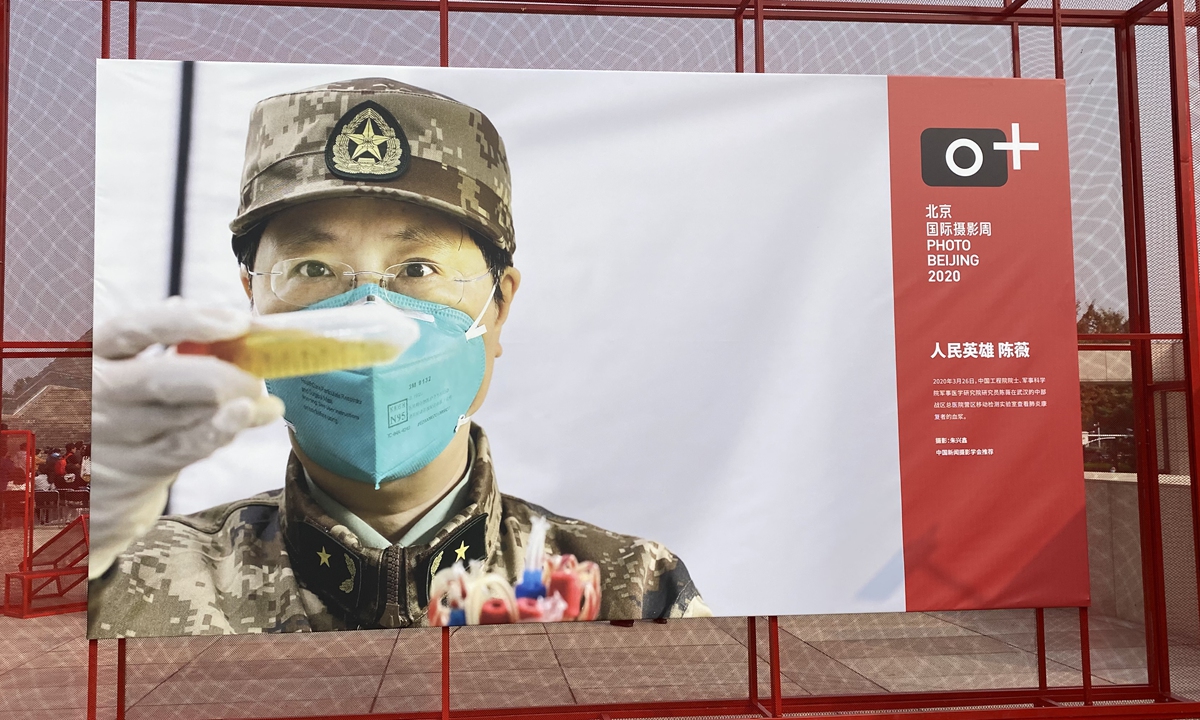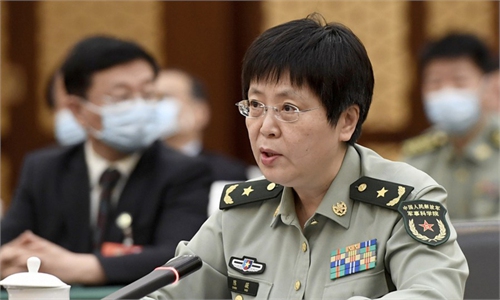Top military infectious disease expert calls for deliberations on the national biosafety system

Photo of Chen Wei at the Photo Beijing 2020 Photo: Xu Liuliu/GT
Top Chinese infectious disease expert, Chen Wei, whose team developed China's first one-dose COVID-19 vaccine, made a call for reflection on the construction of the country's national biosafety system.
Chen, also a member of the National Committee of the Chinese People's Political Consultative Conference (CPPCC), will propose the deliberation on the system during this year's two sessions, Central China Television (CCTV) reported Wednesday.
"We should reflect on the loopholes in the system revealed during the epidemic, as well as places where we can improve. We have to calmly and rationally review the anti-epidemic period and make long-term considerations," Chen told CCTV.
Chen focused on how to integrate resources at different levels of the biosafety system and cultivate more professional talents.
Chen is an academician at the Chinese Academy of Engineering and a researcher at the Institute of Military Medicine under the Academy of Military Sciences.
A recombinant novel coronavirus vaccine that requires only one shot, developed by a research team led by Chen, has been granted conditional approval for public use on February 25, making it China's first approved single-shot COVID-19 vaccine.
On March 16, 2020, a research team led by Chen developed an adenovirus vector COVID-19 vaccine, Ad5-nCoV, the first Chinese-developed candidate vaccine to enter clinical trials, which later became the first in the world to disclose complete phase one clinical trial results and declare dual immune response in the recipient.
Chinese authorities have made some practical improvements on the national biosafety system.
In October 2020, China approved its first biosafety law, under which China will establish 11 basic systems for biosafety risk prevention and control, including a risk monitoring and early warning system, an information sharing and release system, an emergency response system, and an investigation and traceability system.
Analysts said that the law aims to improve China's capacity for biosafety governance in preventing and controlling major risks in the field of biosafety, including outbreaks of infectious diseases involving animals and plants, and biosafety in microbiology laboratory settings.
The approval of the law showed a determination to strengthen biosafety management, given the controversy regarding the management of biological labs, and problems of accountability and responsibility for different government authorities revealed during the COVID-19 epidemic.


